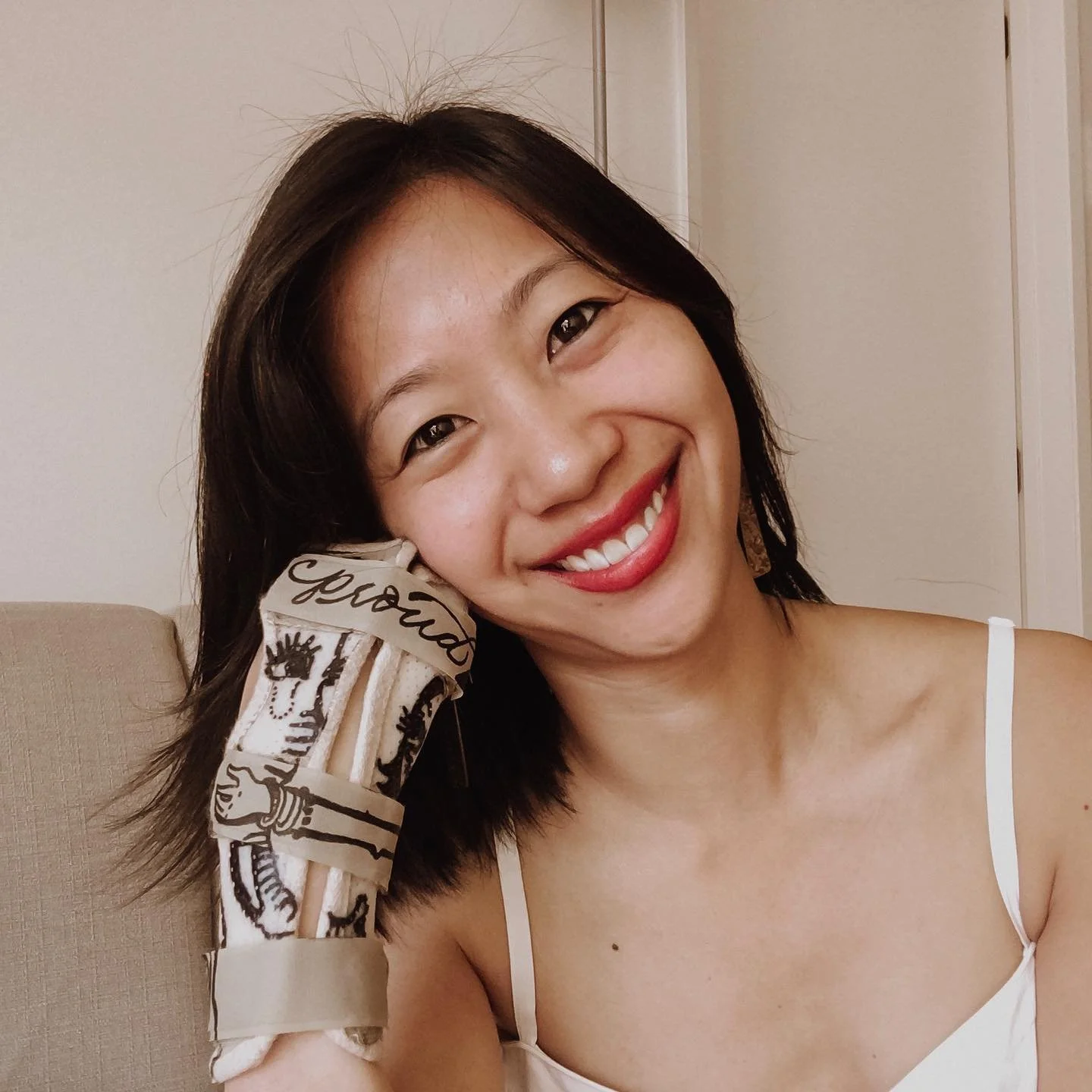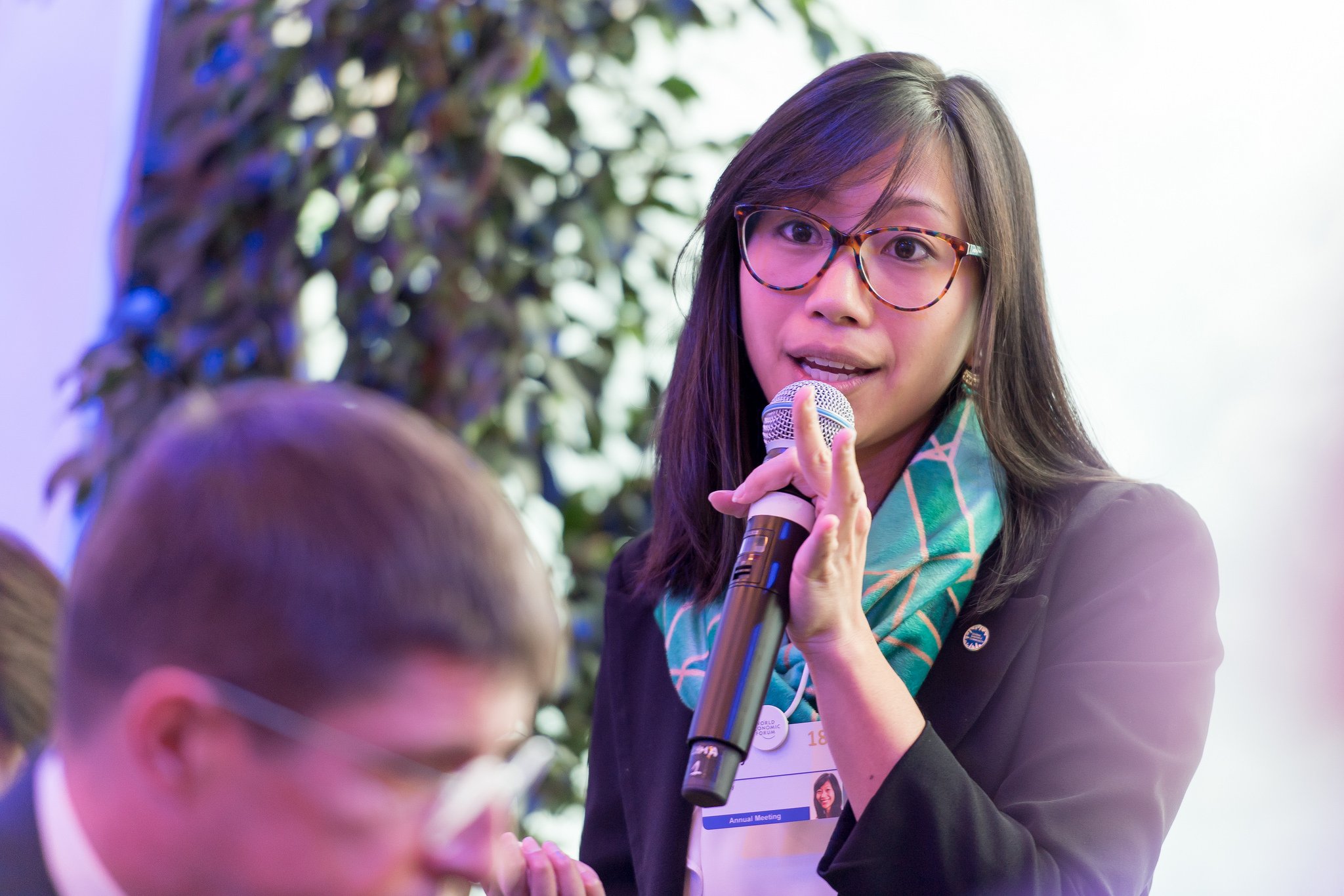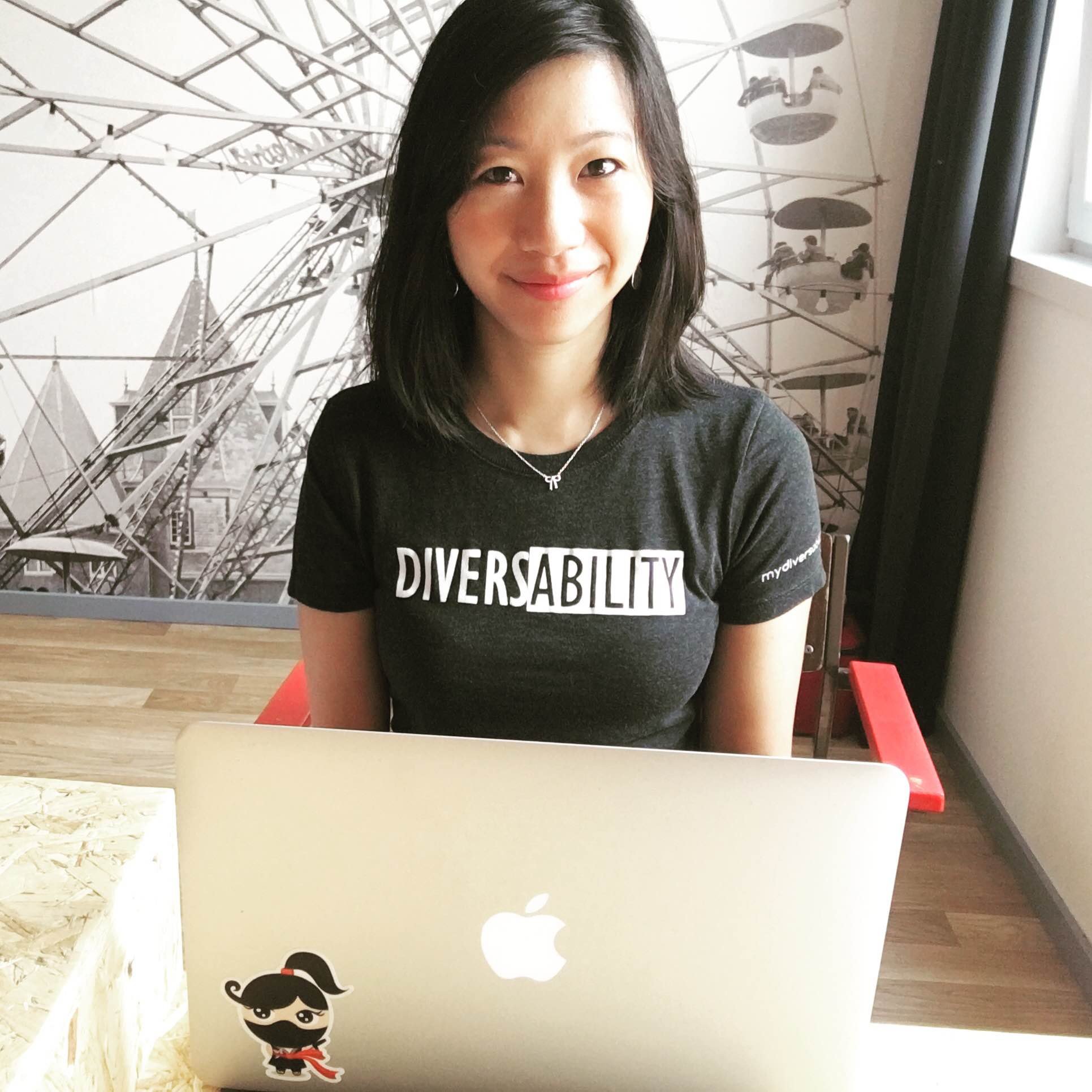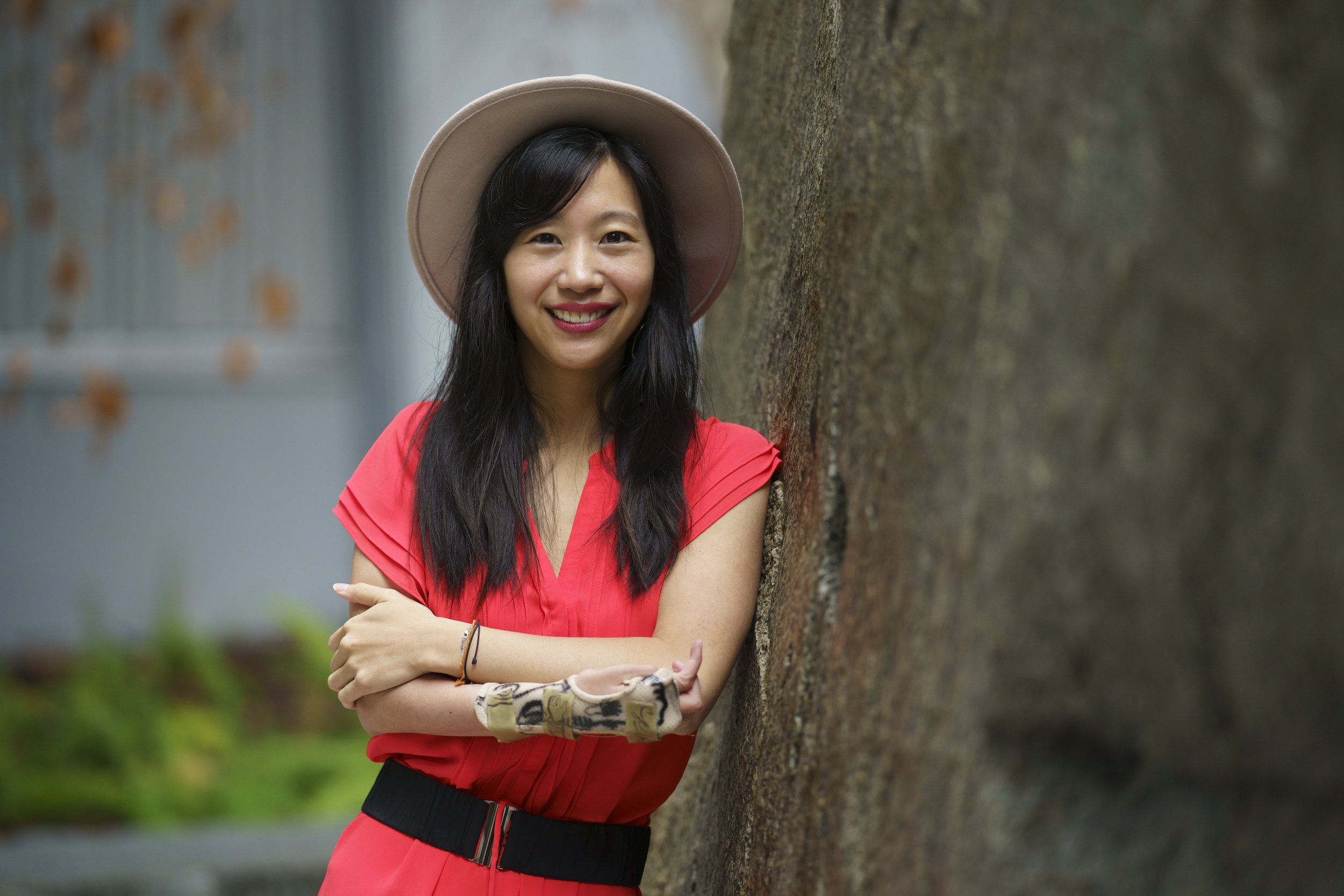DreamChaser | Tiffany Yu
General Information
Name: Tiffany Yu
Pronouns: she/her
Age: 33
Job Title/Company: CEO & Founder, Diversability
Education Background: BSBA Georgetown University, MSc London School of Economics
In-depth Questions
1. Tell us a little about who you are.
I am a first generation daughter of the Taiwanese immigrant and a refugee from the Vietnam War, the youngest of four I grew up in the DC area, and currently live in San Francisco, California
2. What sparked your interest in starting your business(es)?
I started Diversability in 2009 based on my own personal experiences. At the age of nine, I was involved in a car accident where I became disabled, which also took the life of my dad. And I felt really alone in my experience, and what I've realized is that most other disabled people experience social isolation, loneliness and exclusion. And so I wanted to do something to be able to tackle that, because I also knew that healthy relationships and social connection,
3. If applicable, tell us about your full-time job and/or any side hustles you might have.
So I have been full-time on Diversability since 2017 and outside of that, I have a couple of other affiliations, as well. And these include running the awesome foundation disability chapter where we award $1,000 grants monthly to disability projects globally. I also serve on the San Francisco mayor's Disability Council.
4. Who are you most influenced by?
I feel like I am most influenced by the people who consistently, wake up every day and are unapologetically themselves. And I like to call these possibility models, and there are many of them within the disability community, who show that it's possible to pave the way for yourself in fight. When so many external factors are telling us that we should be ashamed in our identities.
“I feel like I am most influenced by the people who consistently, wake up every day and are unapologetically themselves. And I like to call these possibility models, and there are many of them within the disability community, who show that it’s possible to pave the way for yourself in fight.”
5. What was your first job and how long did you hold that position?
My first job ever was, when I was a senior in high school, I would transcribe tapes at an allergist office in Bethesda, Maryland. And I think I was in that role for a couple of months.
6. Can you share one of your proudest achievements with us?
In 2020 I had the opportunity to cochair, the World Economic Forum, sustainable development impact Summit. And it was so incredible for me because I was approached alongside the President of Colombia, and so many other business and civic society leaders that I admire. So, what had led up to that point was another big achievement was getting to attend the World Economic Forum Annual Meeting in Davos, in 2018, and not only did I get to attend, but I also got to speak on five sessions on the formal agenda about disability inclusion. It was the largest global stage, that I've ever been on, and likely the most influential as well.
7. What were your initial goals with your work? How have they evolved?
So when we first started diversity ability in 2009, we really just wanted to create a space that acknowledged that disability was a part of diversity. We also did include in our initial proposal that we are looking to start a movement around disability pride today that goal very much still exists. Our tagline is elevating Disability Pride together. We know that disability awareness is only the first step of where we want people to be and to see disability. And we hope that we hope to get as many people as possible to be embracing their disability identities and taking ownership over their disability narratives.
8. What do you think is the most important life skill you learned through your work?
The most important life skill I learned through my work is the power of just being myself, and how much a gift it is and how liberating it is to be able to show up as my full self, and be able to be doing work that I feel is so aligned with who I am and where I want to be. And I think I have a lot of other professional experiences before this point that I'm also very grateful for, but we're also not the strongest fit for me.
9. Where do you hope to be in five years?
in five years, will be 2026, and one of my longer term goals is to somehow get involved with the Angeles 2028 Olympics and Paralympics, I think that the games returning back to the US. Since Salt Lake City is huge, and we have a real big opportunity and legacy to play in terms of moving the conversation around disability inclusion forward.
10. What is a typical day like for you?
Part of what I like about this work is that there is no typical day. I feel like some days I wake up and I might have a speaking engagement, or I might be spending time looking over some content that we've created at Diversability. I could be talking to partners or recording content, or taking care of home and ife things. So something I'm really grateful for is creating stronger boundaries around my time and making sure that I'm also taking care of my own mental health and making sure that my cup is full when I show up at work.
11. What was the biggest obstacle you’ve faced so far in the process of pursuing your goals?
I think that the biggest obstacle. I have faced is myself. I am doing the work to unlearn some really deep rooted limiting beliefs around my own sense of value of my own sense of self worth.
12. What is the best piece of advice you have received?
The best advice I've received is an inspirational quote I saw on Instagram. That said, if you don't ask, the answer is always no. I feel like I have done a better job of making sure I at least put the ask out and be okay with a response and know that at least I'm vocalizing and verbalizing nature.
13. When do you get your best ideas?
I get my best ideas in community- stability wouldn't exist if we didn't have the community and people doing the work and pushing the conversation forward. And I think part of why I started it this way is I really believe in the power and strength of our collective and all of us as a community to use our power and influence.
14. Can you share with us one time that you failed and what you learned from that failure?
The reason why I became a full-time entrepreneurs is because in 2017, I ended up getting fired from a job. I had been in it for about six months. And I remember going in to meet with my manager for our weekly meeting, and being told that I was being let go. And honestly I was very shocked and confused and felt ashamed for a period of time. But, and I told myself in that period of time that I'd work on Diversability until I found my next opportunity. And now, almost five years later, are still here.
15. How do you unwind?
I unwind by totally like venturing out. I am an introvert, and enjoy time in solitude and being with myself. Winding down, would be shutting off my computer and cooking myself a good meal while watching a show on Netflix or listening to an audiobook. And also just resting in my bed.
16. What did you want to be as a kid?
I wanted to be a talk show host, or a TV news anchor. I think that Ellen DeGeneres and Katie Couric were my two role models as a kid, Ellen just seemed like her job was so fun and Katie, you know, always brought a level of energy to her work, and to the stories that she was supporting, and that helped inform so many people.
“I really believe in the power and strength of our collective and all of us as a community to use our power and influence.”
17. Can you share a sacrifice you have made to pursue your dream?
I haven't invested as heavily in into some of my personal relationships. And I think that my travel schedule before the pandemic didn't allow me to really create groups in the spaces that I was in, so where I physically or geographically was, I didn't create as strong of connections and friendships, even romantic relationships in those areas. And if the pandemic, taught me anything, it was to slow down and to sit with myself and just to stay. So the good news is I don't have any travel plan for the rest of the year so far. I think I will go back home to DC a couple of times, but I can't see myself returning back to the travel schedule that I had before.
18. What would you tell someone else who is interested in entering your field?
I want people to know that advocacy doesn't just look like one thing, You know you can show up at City Hall, you can make a donation, you can show up at a protest or a rally, you can turn to social media. You can create a community like I did or you can start a podcast. I think that, You know I heard this quote that says, in order to change the world you have to change yourself. And I think doing the internal work first to know. Like, why the voice or like why you're like to really understand your own value and wider fleeces needed is going to be really important because, and I think being okay, having an opinion and having people disagree with you, and make judgments about you without even knowing much context about who you are.
19. What do you hope people take away from your story?
I hope that people take away that your story and your voice matters. The greatest gift that you can give the world is being yourself. And my hope for everyone, is that we can show up as unapologetically as ourselves as possible.
Follow Tiffany:





